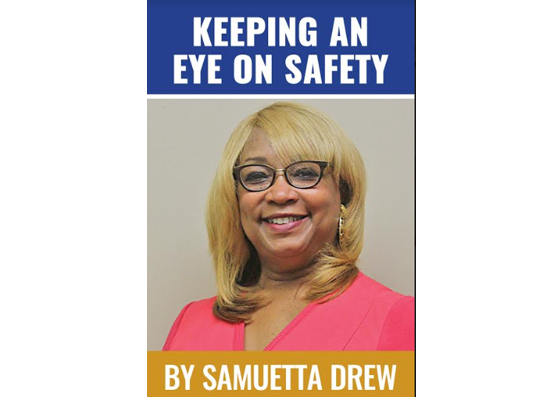By Samuetta Hill Drew
Has COVID-19 given you cabin fever? Are you ready to enjoy the summer weather and sites away from home? Well, if you are fully vaccinated then you can begin packing because the Centers for Disease Control and Prevention (CDC) has cleared the way. On May 19, the CDC reported that, “People who are fully vaccinated with the FDA-authorized vaccine or a vaccine authorized for emergency use by the World Health Organization can travel safely within the United States.”
In the May report by the CDC, there were some traveling requirements for fully vaccinated people to follow. This week’s article will explore some of those safety requirements to help ensure that your trip is a safe and enjoyable one.
Let us begin with the number one COVID-19 safety topic – masks. When do fully vaccinated people wear a mask, if at all? The CDC says that “wearing a mask over your nose and mouth is required on planes, buses, trains and other forms of public transportation traveling into, within, or out of the United States and in the U.S. transportation hubs such as airports and stations.” They further remind everyone to follow all state and local recommendations and requirements, including mask wearing and social distancing.
The CDC’s requirements for face masks on public transportation conveyances and at transportation hubs is based on their research. These findings remind us that a fully vaccinated person’s risk still exists of getting and spreading COVID-19 because public transportation and transportation hubs bring people in close contact with others, often for prolonged periods and exposes them to frequently touched surfaces. Air travel often requires spending time in security lines and busy airport terminals. Travel by bus, train, or other conveyances used for international, interstate, or intrastate transportation poses similar challenges.
Staying six feet away from others is often difficult on public transportation conveyances. People may not be able to distance themselves by the recommended minimum of six feet from other people seated nearby or from those standing in or passing through the aisles on airplanes, trains, or buses.
The CDC reminds us that travel contributes to interstate and international spread of the virus that causes COVID-19. Wearing masks that completely cover one’s mouth and nose helps reduce the spread of COVID-19. People who never develop symptoms (asymptomatic) or are not yet showing symptoms (pre-symptomatic) might not know that they are infected but can still spread COVID-19 to others. Masks also offer protection to the wearer.
To help Keep an Eye on Safety after fully vaccinated people travel, they should self-monitor for COVID-19 symptoms, isolate and get tested if they develop symptoms. The CDC also states that “You DO NOT need to get tested or self-quarantine if you are fully vaccinated or have recovered from COVID-19 in the past three months, but you should still follow the travel recommendations.”




